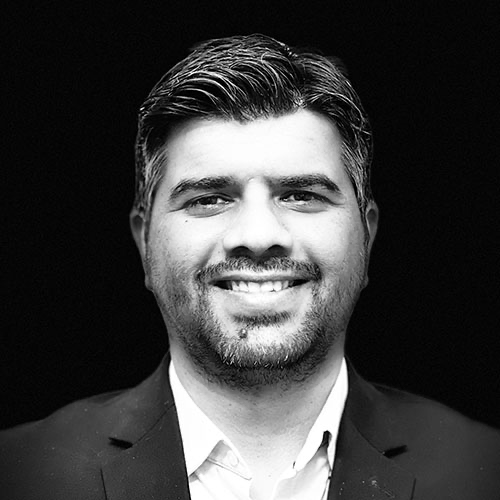Rajat Chabba named senior director of innovation, partnerships at WDI

Indian American executive to play pivotal role in building strategic partnerships and catalytic collaborations at the research and educational organization
By Arun Kumar
Indian American executive Rajat Chabba has been named as Senior Director of Innovation and Partnerships at William Davidson Institute (WDI), an independent, non-profit research and educational organization at the University of Michigan.
Chabba plays a pivotal role for WDI in building strategic partnerships and catalytic collaborations, with a particular focus on enterprise acceleration in emerging markets and strengthening innovation ecosystems, according to a media release.
READ: Sindhu Srinivas to lead Pennsylvania University’s public health campus (January 23rd, 2025)
Before joining WDI, Chabba served as the Technical Director for Market Solutions at the Innovations Hub at Jhpiego, a nonprofit organization for international health affiliated with Johns Hopkins University, where he spearheaded private sector engagement to drive health impact across Southeast Asia, Africa, the Middle East and Latin America.
Chabba established Jhpiego’s Worldwide Innovation Support Hub, providing targeted support to over 100 social innovators working within complex health systems to foster partnerships, generate local evidence, influence policy, train health workers and engage communities in their journey from idea to impact.
Chabba’s experience blends well with WDI’s direction as an enterprise accelerator, systems catalyst and knowledge hub, according to the release.
“With its expertise in energy, climate and health, WDI is primed to create, support and accelerate entrepreneurial ecosystems in low- and middle-income countries,” Chabba said. “I’m excited to work across innovation, platform, and ecosystem levels in emerging markets to create new collaborations that support innovators and entrepreneurs.”
Chabba previously served as the Global Lead for Healthcare Practice & Innovations Lab at Intellecap, a social development consulting firm focused on solving critical health challenges in underserved communities through technology, entrepreneurship and innovation.
“Despite significant potential, energy, climate and health sectors still lack a sufficient number of scalable innovations to address pressing global challenges. While some solutions exist, many are still at an early stage and need rapid scaling to meet demand,” Chabba said. “That’s where WDI can play a huge role in advancing innovators and enterprises to scale, but also supporting existing incubators, accelerators, investors and above all governments in strengthening the enabling environment for these innovations to thrive and sustain.”
The financing gap impacting startups and early-stage enterprises in low- and middle-income markets remains one of the more critical challenges facing entrepreneurs and innovators, Chabba noted. Traditional donor funding is decreasing, and the need for alternative financing models—such as impact investing, blended finance, and private-public partnerships—is growing.
“At WDI, we have the expertise and networks to help bridge the financing gap, create new approaches to deliver services, and support innovative solutions at scale both in depth and breadth,” he said.
With over a decade of experience across sectors such as women’s health, infectious diseases, primary healthcare, climate health, eye care and sanitation, Chabba has collaborated with corporates, nonprofits, foundations, multilateral agencies and consulting firms to deliver developmental impact.
“We couldn’t be more thrilled for Rajat to join WDI,” said Wendy Taylor, WDI President and CEO. “His proven track record of developing new networks to bring entrepreneurs, investors and many other stakeholders together is precisely what we value as we look to expand our offerings as an enterprise accelerator and systems catalyst.”
Chabba holds an MBBS from BJ Medical College, Ahmedabad, and a Master’s in Rural Management from IRMA. He is a recipient of the Acumen Fellowship in 2015 and the League of ‘Intrapreneurship’ Fellowship in 2021.
“Entrepreneurs are doing the work, taking the risks and are the driving force behind innovations. The questions we have to ask is how can we create systems to deliver the right support at the right time, with the best interest of local communities at the core,” Chabba said.

